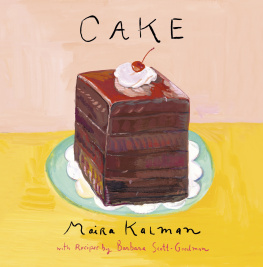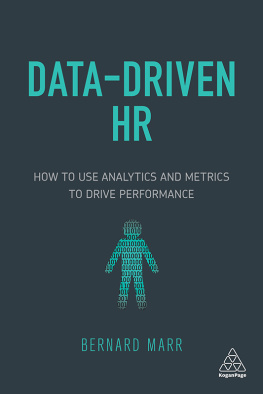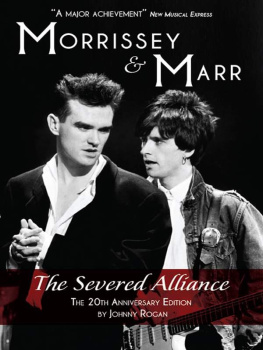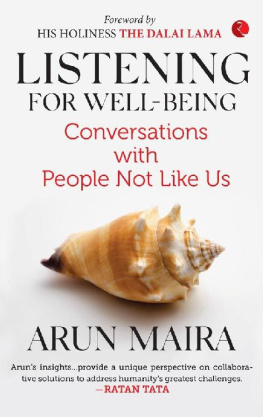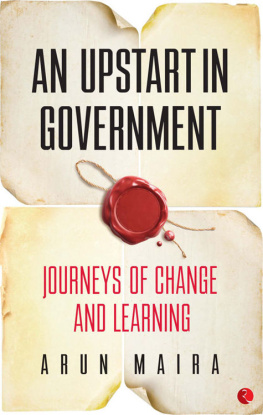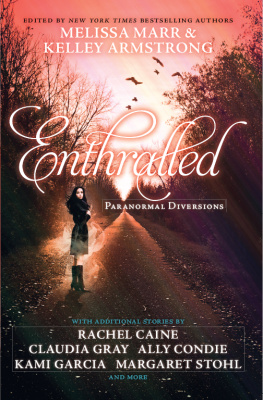NEW YORK UNIVERSITY PRESS
New York
www.nyupress.org
2016 by New York University
All rights reserved
References to Internet websites (URLs) were accurate at the time of writing. Neither the author nor New York University Press is responsible for URLs that may have expired or changed since the manuscript was prepared.
Library of Congress Cataloging-in-Publication Data
Names: Maira, Sunaina, 1969 author.
Title: The 9/11 generation : youth, rights, and solidarity in the war on terror / Sunaina Marr Maira.
Description: New York : New York University Press, [2016] | Includes bibliographical references and index.
Identifiers: LCCN 2016010270| ISBN 978-1-4798-1769-6 (cl : alk. paper) | ISBN 978-1-4798-8051-5 (pb : alk. paper)
Subjects: LCSH: YouthPolitical activityCalifornia. | Civil rightsCalifornia. | IslamophobiaCalifornia. | MuslimsCaliforniaSocial conditions21st century. | Minority youthCaliforniaSocial conditions21st century. | September 11 Terrorist Attacks, 2001Social aspects. | War on Terrorism, 2001-2009Social aspects.
Classification: LCC HQ799.2.P6 M345 2016 | DDC 320.40835/09794dc23
LC record available at https://lccn.loc.gov/2016010270
New York University Press books are printed on acid-free paper, and their binding materials are chosen for strength and durability. We strive to use environmentally responsible suppliers and materials to the greatest extent possible in publishing our books.
Manufactured in the United States of America
10 9 8 7 6 5 4 3 2 1
Also available as an ebook
This book project has evolved over more than a decade, since I found myself settled in the Bay Area in 20032004 and immersed in post-9/11 political organizing. It was driven by my own curiosity and concerns about the shape that community activism, antiwar, and solidarity campaigns were taking after 9/11 and during the wars in Afghanistan and Iraq, and so its critiques are directed as much at my own engagements as anything else. The book owes a great debt to the many young activists who spearheaded or were involved in these campaigns and to the movements that emerged to resist the violent and repressive policies of the U.S. as well as its allies. I appreciate their dedication and efforts and though there are too many names to list here, I would like to thank comrades from the Alliance for South Asians Taking Action, Justice in Palestine Coalition, Asian Pacific Islander Coalition against the War, Friends of South Asia, (then) St. Peters Housing Committee and Deporten a la Migra, and Pakistanis for Palestine (in Lahore), among others. I also continue to be sustained and supported by the commitment and vision of fellow organizers in USACBI (U.S. Campaign for the Academic and Cultural Boycott of Israel). In a U.S. academy where professionalized scholars keep a safe distance from risky causes, their courage and persistence stands out.
I am grateful for the intellectual support and inspiration of many colleagues and mentors, again too numerous to mention here, who have given me space to share my ideas through talks and conference papers along the way. I would be remiss not to mention in particular the support and inspiration of Natalia Deeb-Sossa, Veena Dubal, Lisa Duggan, David Eng, Robin Kelley, George Lipsitz, Curtis Marez, Sherene Razack, Chandan Reddy, Roshni Rustomji-Kerns, and Howard Winant. At UC Davis I especially appreciate the encouragement I have received from Wendy Ho, Robert Irwin, Richard Kim, Susette Min, Kriss Ravetto, Robyn Rodriguez, and Baki Tezcan. I also want to thank May Jayussi and Nadera Shalhoub-Kevorkian in Palestine for providing me with feedback and intellectual community while I was doing research in the West Bank.
Earlier versions of portions of chapters have appeared in the edited volumes Gender, National Security, and Counter-Terrorism: Human Rights Perspectives (2012), edited by Margaret L. Satterthwaite and Jayne C. Huckerby; At the Limits of Justice: Women of Color on Terror (2014), edited by Suvendrini Perera and Sherene H. Razack; and The War of My Generation: Youth Culture and the War on Terror (2015), edited by David Kieran. I have also had the opportunity to present this research at several conferences where the feedback I have received has been very valuable.This book would not have happened without the diligent efforts and resourcefulness of my many able student research assistants who have worked with me over the years: Amena, Amir, Asra, Duaa, Madeline, Marjan, Meena, Najia, Nurges, Sabrena, Safura, Summer, Tanya, and Trisha. Their insights, hard work, and commitment made it possible for me to persist with this ethnographic research and their help with the interviews and field work is an incredibly important part of this study. I also want to give a shout out to the courageous participants in Students for Justice in PalestineDavis and to my faculty and graduate student colleagues in Faculty for Justice in Palestine.
My deep thanks to my editor, Eric Zinner, for his enthusiastic commitment to this book project and for supporting my work, and to Alicia Nadkarni and Dorothea Halliday at NYU Press for their editorial and production assistance. I am also grateful to Dan Geist for his superb copy editing of the manuscript and knowledgeable review of details.
Last but not least, I want to express my deep thanks to my family and especially my parents, Shama and Arun, for their love and generosity; and my partner, Magid, for his support, feedback, and vision. This book is for my daughter, Layla, whose resilience, sense of fairness, sensitivity, and joy is astonishing and who is the reason for everything.
Since the events of September 11, 2001, the intensified concern with national security and the U.S.-led global War on Terror has led to a preoccupation with monitoring, policing, and regulating the political affiliations and engagement of Muslim American and Middle Eastern communities. Under the PATRIOT Act and with the expanded powers given to law enforcement and intelligence agencies to hunt down potential terrorists and preempt terrorism, Arab, South Asian (particularly Pakistani), Afghan, Iranian, and Muslim Americans in general have been subjected to surveillance as well as detention and deportation. Youth from these communities who are defined as objects of the domestic as well as global War on Terror have come of age in a moment when the question of political engagement for Muslim youth is extremely pressing but also incredibly fraught.
This book uses ethnographic research to explore the forms that politics takes for South Asian, Arab, and Afghan American youth in Silicon Valley, addressing the overarching question: how is politics defined and what forms of politics are viewed as important, effective, and desirable by this generation of youth, the so-called 9/11 generation? And what happens when we decouple 9/11 as a signifier of identification from this generational category to understand the range of political critiques and shifting identifications among South Asian, Arab, and Afghan American youth? The 9/11 generation, of course, includes not only Muslim and Middle Eastern Americans but also young people from other communities who have entered adolescence since 9/11 and have been deeply shaped by the aftermath of this historical event; but it is Muslim and Middle Eastern American youth who have been construed as objects of the War on Terror and so especially impacted by the shifts in national culture.





